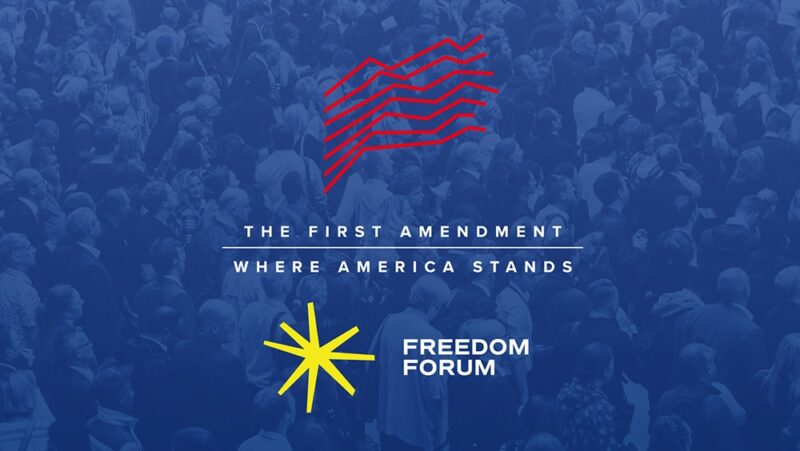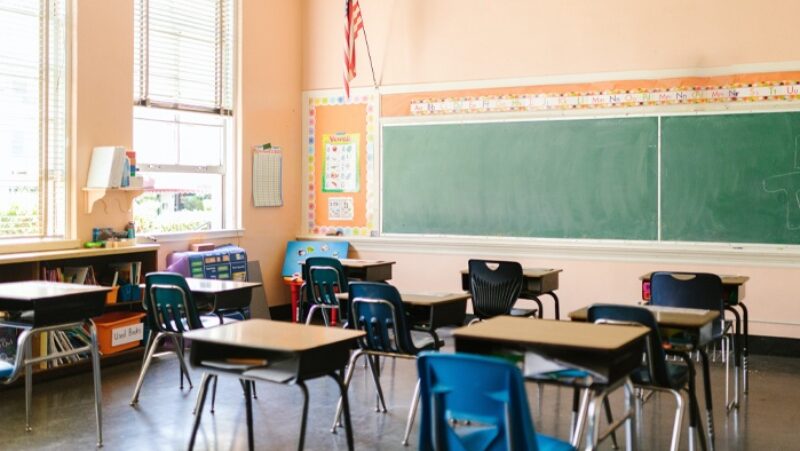Canceled Comedians: 15 Performers Who Have Been ‘Canceled’ (and Why)
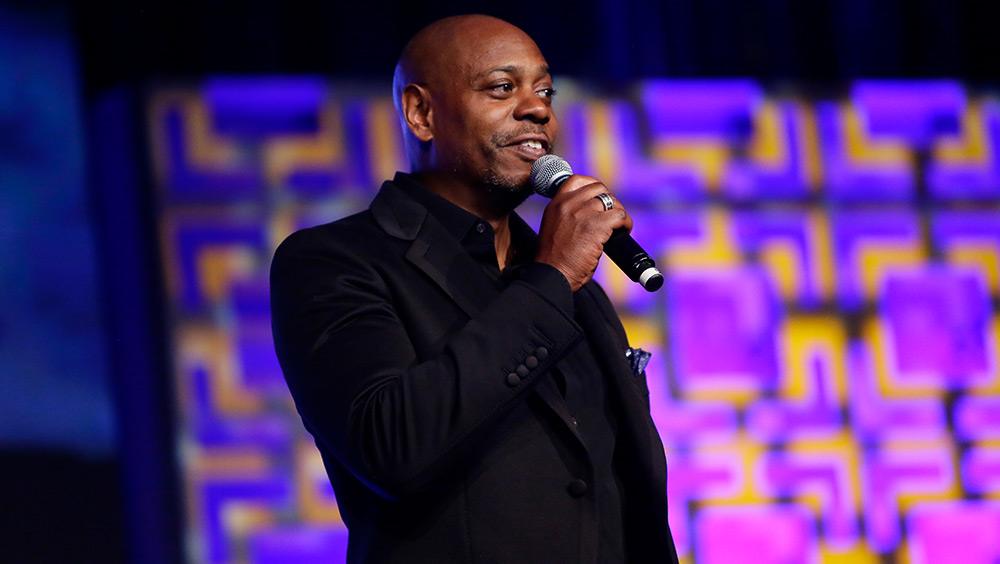
Stop me if you’ve heard this one: Canceled comedians are everywhere. And nowhere. Get it? Because they’re canceled! (*RIM SHOT*)
The idea of canceled comedians and the many claims of “cancel culture” it prompts are nothing new, though the amount of online chatter makes it feel like it’s an existential crisis that could end democracy as we know it.
Here’s one you may not have heard, and it’s no joke: There’s a big First Amendment angle to talking about canceled comedians.
Comedy, canceling and the First Amendment
Comedy and its many forms (stand-up, improv, sketch, parody, podcasts, social media posts, etc.) are protected under the First Amendment, which prevents the government from punishing people for their speech and expression.
Throughout history, government officials have tried to censor, silence or even jail comedians. Many of these attempts were based on the supposedly “obscene” nature of the speech. A 1973 U.S. Supreme Court decision (Miller v. California) held that most comedy, even that which uses profanity, racial slurs, anti-LGBTQ+ language or talks about sex, does not count as obscenity.
But the FCC has fined some over-the-air radio and TV stations (not satellite or cable) for violations of broadcast-specific indecency rules based on comedy routines.
Canceling is a vague and controversial term.
One person’s “cancelation” is another person’s use of their own First Amendment-protected free speech right to criticize or decide not to work with a comedian.
Generally, “accountability” refers to people reacting to someone’s words or actions in a way that results in some form of economic or social damage; they lose a job or are shunned for expressing themselves. It’s true that people objecting to a comedian’s speech has resulted in comedians missing chances to host shows or appear on stage and, ultimately, lose money. Whether that’s being “canceled” or just the consequence of someone’s criticized speech is a matter of debate.
What’s clear is that it differs from censorship. “Cancelation” refers to non-governmental action. Censorship refers to government punishment of expression. Censorship is a First Amendment issue because it involves government action.
“Cancelation” is not a First Amendment issue because it exists entirely in the private sphere. The term “cancel culture” is sometimes used to describe a trend where people who are offended by speech seek to quickly shut down the offending people.
RELATED: Cancel Culture: Censorship, Civil Right or Something Else?
15 canceled comedians to know, love, hate — or love to hate
As many examples of canceled comedians show, the media coverage and online chatter that follow a controversy often result in the comedian becoming even more popular. In some cases, being “canceled” or criticized helped their careers. In others, it had long-term negative effects.
With that in mind, here are 15 canceled comedians. Or, if you prefer: People whose comedic free speech was challenged. Sometimes that challenge came from others using their own speech to criticize the comedian or from TV networks that didn’t like what the comedians said.
Lenny Bruce
There were plenty of comedians in Lenny Bruce’s time of the 1950s and ’60s. But where many zigged, Bruce zagged – far away from the norm. That started before his comedy career when he was in the U.S. military. In 1945, he was dishonorably discharged from the Navy for dressing and performing in drag.
Today, Bruce is counted among the most influential comedians ever for pushing boundaries. Where many comedians of his time stayed “safe” and clean, he went head-on into topics of sex and other adult themes as well as social commentary. The resulting label of doing “blue material” landed him on blacklists and got him banned from radio and TV shows. It also put him in the sights of government censors who enforced obscenity laws by sitting in the audience at his comedy club performances.
In 1961, he was arrested on stage in San Francisco and again in West Hollywood for saying words that government censors thought were obscene. In 1964, he was arrested twice after performances in New York City on obscenity charges, for which he was convicted, meaning he was not only canceled but censored.
Bruce died in 1966 at age 40, never living to see New York Gov. George Pataki pardon him in 2003.
CENSORED BY GOVERNMENT? Yes.
HOW WAS HE CANCELED? Arrested and stopped from performing; lost gigs from clubs refusing to have him perform.
The Smothers Brothers
The 1960s were a tumultuous time culturally, socially, politically and musically. All of that was on display as brothers Tom and Dick Smothers lampooned politics and showcased their musical talent on “The Smothers Brothers Comedy Hour.”
Broadcast by CBS from 1967 to 1969, the show blended folk and protest music with stinging social satire and government criticism at a time of angst in the U.S. during the Vietnam War and the assassinations of the Rev. Martin Luther King Jr. and Robert F. Kennedy.
The brothers clashed with network censors who didn’t like the protest themes of the show’s comedy sketches and musical guests, including singer and Black civil rights activist Harry Belafonte. The network required the show to be taped and delivered 10 days before airing to allow time for editing by the network and local stations. The brothers pushed back on these demands, and CBS’s president abruptly canceled the show. They sued for breach of contract and won more than $775,000 in 1973.
CENSORED BY GOVERNMENT? Not directly. President Lyndon Johnson called CBS in 1967 and pressured the network to “get those bastards off my back.” But there was no direct action the government took to censor, cancel or fine the show.
HOW WERE THEY CANCELED? TV show canceled.
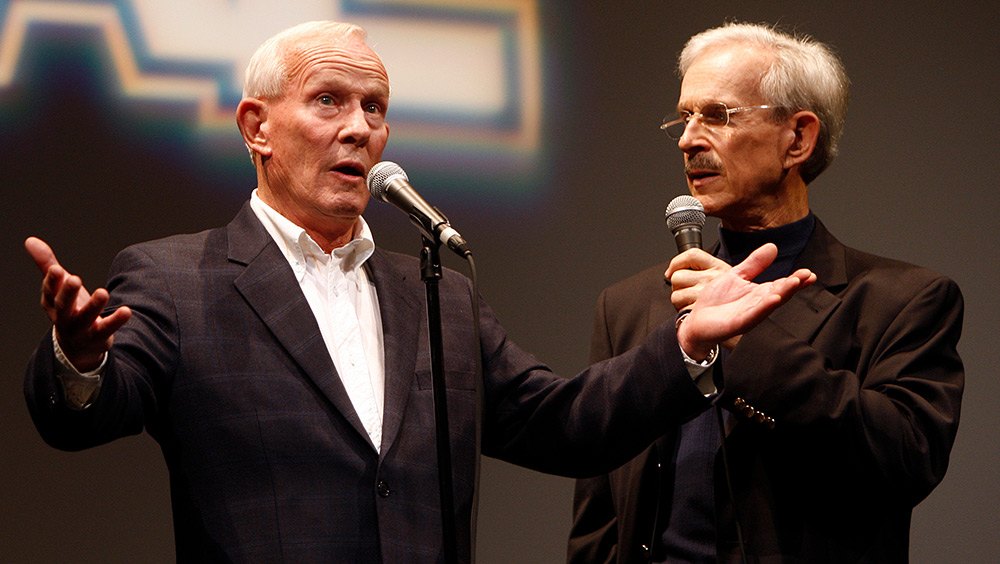
Comedians Tom and Dick Smothers perform at the Boston Comedy Festival finals in 2008.
Richard Pryor
Being raised in the rough environment of a brothel during the racially segregated 1940s and ’50s gave Richard Pryor plenty of material for his career. But his brand of explicit, racially intense comedy didn’t come until a few years into his stand-up career. When it came, it hit hard and loud, at a time when Black comedians were in short supply.
He prominently used the N-word in his act, even using it in the name of his 1976 comedy album, though he later stopped using the word on stage. His prominence and countercultural influence landed him a self-titled TV show on NBC. It was canceled after four episodes, stemming from audience reaction to his material and his feelings about network censors.
CENSORED BY GOVERNMENT? No.
HOW WAS HE CANCELED? TV show canceled.
Joan Rivers
Depending on when you were born, you might know Joan Rivers as a variety show performer, a stand-up comic, a talk-show host, an awards show red carpet interviewer or a product pitcher on QVC. If you’re a comic, particularly a woman, you know her as a trailblazer.
Rivers is cited as an inspiration and hero of many comedians, someone who didn’t care what people said or thought of her, especially when they thought she shouldn’t be on stage. She was never afraid to push the envelope, such as joking about suicide and 9/11 widows. That sometimes got her in hot water with audiences and studio executives.
In the 1980s, she landed a lucrative role as permanent guest host for Johnny Carson on “The Tonight Show.” But she left in 1986 to host her own competing late-night show on the new and then-struggling Fox network. Carson was famously angry and banned her from appearing on his show again. Citing low ratings, Fox canceled Rivers’ show after eight months, though many people believed it was because audiences didn’t respond well to a brash female host and because of her clashes with Fox executives.
CENSORED BY GOVERNMENT? No.
HOW WAS SHE CANCELED? TV show canceled.
Michael Richards
Some comics and actors get pigeonholed for that one big thing they’re known for doing. With Michael Richards, it was playing Kramer on “Seinfeld.” And an expletive-filled, racist tirade against an audience member who said Richards was bombing during a 2006 stand-up set in Los Angeles. Someone in the crowd filmed it, TMZ obtained the video, and it went viral in a time before that was an everyday term.
Richards apologized, but his career never recovered, and he’s been largely out of public life since, having retired from stand-up comedy following the incident. He later appeared on an episode of Jerry Seinfeld’s “Comedians in Cars Getting Coffee,” Larry David’s “Curb Your Enthusiasm” and multiple episodes of Kirstie Alley’s self-titled sitcom.
A memoir by Richards, titled “Entrances and Exits” is set for release in June 2024.
CENSORED BY GOVERNMENT? No.
HOW WAS HE CANCELED? Heckled on stage. Intense public backlash. Left stand-up.
Carlos Mencia
Many comedians on a “canceled” list are on it for the negative audience reaction to something they said. For Carlos Mencia, it’s what he said that others said first – and for a fellow comic criticizing him. That was Joe Rogan.
Before he was a popular podcaster, Rogan was a stand-up comic, actor and game show host. At a comedy night in 2007, Rogan confronted Mencia on stage, publicly accusing him of stealing other people’s jokes. In the comedy world, joke stealing is a grave sin almost worthy of excommunication. Mencia was a star at the time, with a TV show, but his career took a big hit after being effectively canceled by a fellow comedian.
On his podcast, Rogan has been a critic of modern “cancel culture,” which prompted Mencia to criticize Rogan in 2021, saying, “It is ironic that a guy who is now saying you shouldn’t cancel anybody at least started the building of his podcast by canceling me.”
CENSORED BY GOVERNMENT? No.
HOW WAS HE CANCELED? Called out by fellow comedian on stage.
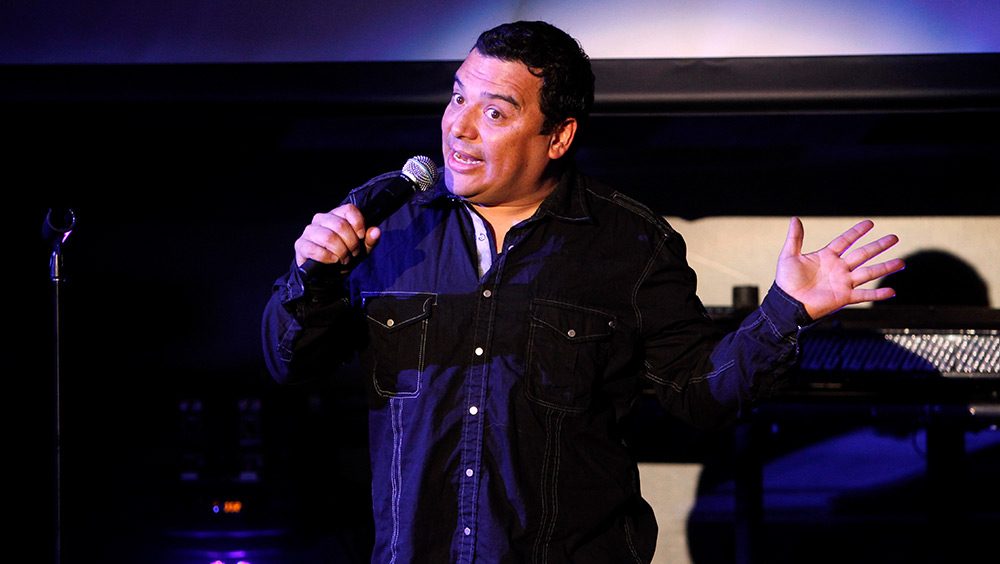
Comedian Carlos Mencia performs during the Tr3s: MTV, Musica y Mas Upfront in 2010.
Bill Cosby
Known as “America’s dad,” Bill Cosby is among the most popular and recognized comedians of all time. “The Cosby Show” and follow-up “Cosby” put him on millions of TV screens every week before the streaming era.
His nice guy reputation ended following allegations of sexual assault and rape from multiple women. The allegations had been whispered for years in his heyday, but they rocketed into the mainstream in 2014 when fellow comedian Hannibal Buress lambasted him on stage, calling him a rapist.
Through the backlash, Cosby continued to tour and attract large audiences. The fallout led to prosecutors opening investigations. Cosby was eventually convicted of aggravated assault, but the Pennsylvania Supreme Court overturned it on appeal in 2021.
CENSORED BY GOVERNMENT? No.
HOW WAS HE CANCELED? Criticized by fellow comedians based on his own statements about the Black community. Lost gigs. Held legally accountable for his actions.
Kathy Griffin
Few comics have staked their careers on being unliked and overlooked more than Kathy Griffin. Like Joan Rivers, Griffin made part of her persona purposely loud and abrasive, leaning into the idea that she was mostly on the outside looking in at an exclusive entertainment industry.
Her reality TV show “My Life On the D-List” ran for five seasons, though not too many D-listers have as many acting credits as she does. She was banned from multiple talk shows due to interactions with and jokes about hosts. In 2017, she posted a picture on social media of herself holding a fake severed head meant to look like then-President Donald Trump. She said it was an artistic criticism of Trump’s previous statements about journalist Megyn Kelly. The backlash to the photo was fierce, and Griffin was dropped by sponsors, comedy clubs, and fired from her CNN New Year’s Eve co-hosting gig with Anderson Cooper.
In 2022, Griffin was suspended from X, then called Twitter, after running afoul of its rules for impersonating owner Elon Musk. He reinstated Griffin’s account after less than two weeks.
CENSORED BY GOVERNMENT? No.
HOW WAS SHE CANCELED? Lost gigs.
Going forward, any Twitter handles engaging in impersonation without clearly specifying “parody” will be permanently suspended
— Elon Musk (@elonmusk) November 6, 2022
Roseanne Barr
If there’s a comedian known for saying what she thinks, doing what she wants, and not caring how people react, it’s probably Roseanne Barr. She’s known not just by one name, but for one thing: being herself – flaws and all. Many people identified with that brand of comedy, which led to her hit, self-titled TV sitcom on ABC for 10 seasons. Her style has also gotten her in trouble.
In 1990, her rendition of the national anthem at a San Diego Padres baseball game led the crowd to boo her, which was before she grabbed her crotch and spit. In 2018, after ABC brought back “Roseanne” for a revived second run, she posted a line on X, then Twitter, about a Black Obama administration official that was widely condemned as racist. The reaction was swift, with calls for her to be fired from the show that carried her name for 30 years. Hulu pulled the show from its platform. ABC fired her and created a spinoff named “The Conners.”
CENSORED BY GOVERNMENT? No.
HOW WAS SHE CANCELED? Removed from TV show that bore her name.
Kevin Hart
The Academy Awards have a history of ups and downs with the person who hosts them. Often, it’s a “safe” comedian who won’t cause too much controversy during the show and is largely beloved (see: Billy Crystal). Sometimes that doesn’t quite work out (see: 2022 Chris Rock slap). As one of the most successful comedians of the past 20 years, Kevin Hart was a natural choice to host the 2019 awards. For Hart, the bad press started before he ever stepped on the Oscars stage.
Past tweets and comedy bits that people criticized as homophobic made his hosting the show difficult. The Academy asked him to apologize, and he initially refused. He stepped down as host and publicly apologized multiple times. A month later, he appeared on the talk show of gay comedian Ellen DeGeneres, where he again apologized. DeGeneres said his critics were “haters”, and he should still host the Oscars.
Reflecting on the controversy in 2024, he said he wouldn’t host the Oscars in the future, saying awards shows “aren’t comedy-friendly environments anymore.” Hart has continued selling out venues, landing leading movie roles and being honored for his work. In 2024, he’ll receive the Kennedy Center’s Mark Twain Prize, considered one of the highest lifetime achievement honors for a comedian.
CENSORED BY GOVERNMENT? No.
HOW WAS HE CANCELED? Asked to apologize following criticism for past speech. Voluntarily stepped down from hosting.
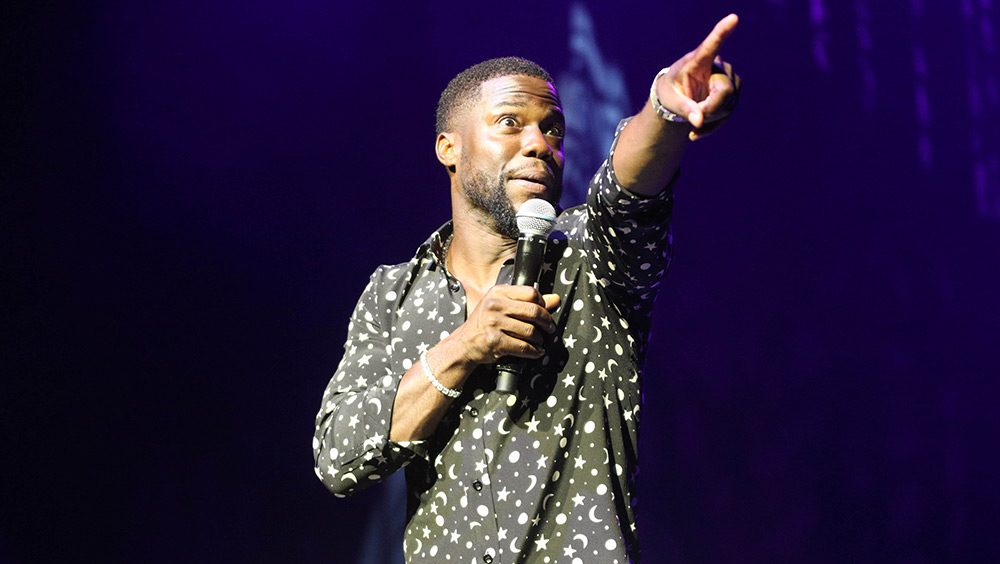
Kevin Hart performs at The Chelsea at the Cosmopolitan in Las Vegas, Nevada in 2017.
Louis C.K.
There was a time when Louis C.K. was one of the biggest stand-up comics touring. He released comedy specials via his website instead of with TV studios. He helped boost other comics’ careers. He had a popular and acclaimed TV show. Terry Gross interviewed him on NPR’s “Fresh Air" several times. It all ground to a halt in 2017 after multiple women came forward with sexual misconduct allegations.
At first, he sidestepped them, but he later took responsibility. In response, multiple companies canceled deals with him, and he largely stopped appearing in public or doing big shows. He slowly started appearing in small comedy clubs. By 2021, he was back on the road doing a nationwide tour. In 2022, he won a Grammy for his comedy album “Sincerely Louis CK,” and he released new comedy specials again on his website. In January 2023, he performed a sold-out show at Madison Square Garden in New York City before more than 21,000 people.
CENSORED BY GOVERNMENT? No.
HOW WAS HE CANCELED? Held accountable for actions not directly tied to his comedic speech. Lost gigs.
Dave Chappelle
Dave Chappelle could be the only comedian to self-cancel. At least that’s what it felt like to fans after he famously walked away from “Chappelle’s Show” after less than three seasons. Fans were confused why someone who had made such a massive cultural impact for his stinging comedy and racially conscious commentary could leave at the height of his fame.
After years out of the limelight, Chappelle returned to stand-up in 2013 to critical acclaim. But the intervening years shifted cultural norms and the ways people interact with comedians online. His deal with Netflix produced more comedy specials and calls for them to be canceled due to his statements and comedy bits about LGBTQ+ people that some derided as transphobic. Hundreds of Netflix employees walked out in protest.
He attracted further criticism in 2022 when he hosted “Saturday Night Live” and alluded to a Jewish conspiracy against him. Despite the criticism, his specials and live show have remained popular, and Netflix never canceled their deal.
CENSORED BY GOVERNMENT? No.
HOW WAS HE CANCELED? Left his show by his own choice. Faced protests by Netflix employees. Online scrutiny and people refused to continue watching him.
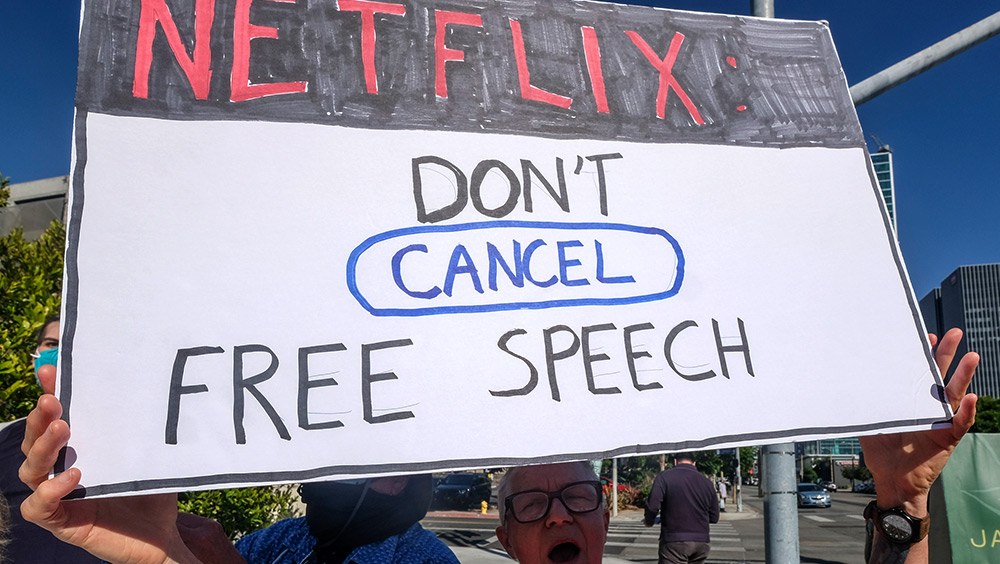
Critics and supporters of Dave Chappelle's Netflix special protest outside Netflix offices in 2021.
Jon Stewart
Unlike people getting criticized and “canceled” by critics, Jon Stewart was canceled by a multi-trillion-dollar company and possibly a foreign country.
The longtime former host of “The Daily Show” returned to his brand of comedy mixed with news mixed with interviews mixed with biting social critique when he launched “The Problem with Jon Stewart” on Apple TV+. It turned out the titular problem could have been him and his interest in topics that Apple didn’t like, including artificial intelligence and China. Speculation centered on China and Apple being uncomfortable with the criticism given how much the company depends on the country for its products. It seemed to work out for Stewart as he returned to executive produce “The Daily Show” in 2024 and host once per week.
CENSORED BY GOVERNMENT? No.
HOW WAS HE CANCELED? TV show canceled.
Shane Gillis
The internet, social media and podcasting have been blessings and sometimes a curse for many comics. On one hand, there are numerous platforms to gain audiences. On the other hand, everything you’ve ever said online or near a microphone can come back to bite you years later. For Shane Gillis, that happened in 2019 as he was set to become a cast member of “Saturday Night Live.”
Before he even hit the stage, people dug up past podcast episodes and criticized him for using racist and homophobic language. The backlash was fast, and he agreed to leave the show, saying he would be a distraction. His supporters stuck with him, and he’s become a fast-rising comedy star since losing the SNL gig. He didn’t fall too far out of executive producer Lorne Michaels’ good graces: Gillis returned to SNL in February 2024 to host.
CENSORED BY GOVERNMENT? No.
HOW WAS HE CANCELED? Fired from TV show.
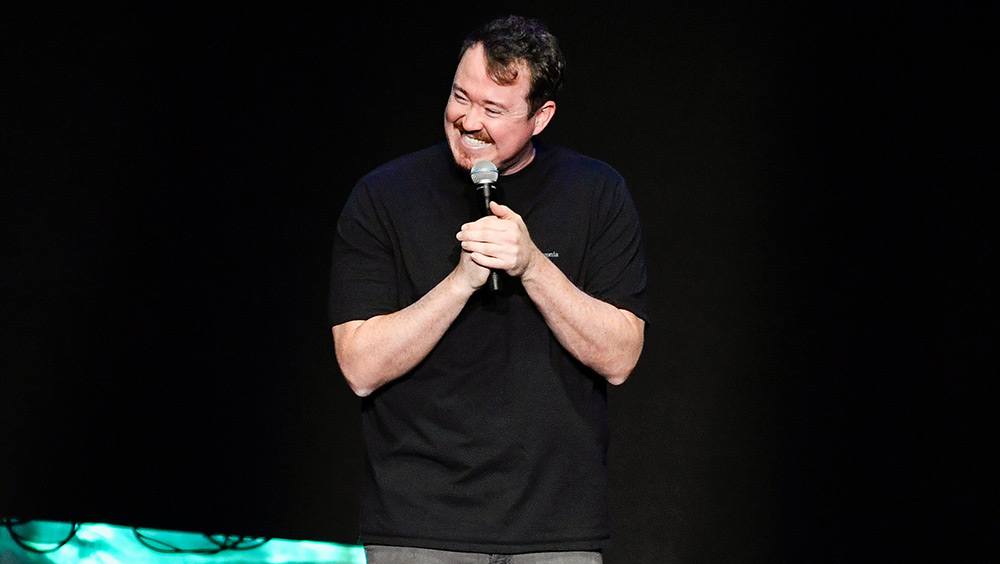
Shane Gillis performs at Madison Square Garden during Dave Chappelle's 50th birthday celebration shows in 2023.
Matt Rife
Comedians coming of age in the TikTok era know that much of their appeal is how they look on camera while connecting with mass audiences through short videos. That’s how Matt Rife rose to fame during the COVID-19 pandemic. But those short bits meant for quick viewing and sharing may be difficult to translate into a full comedy special. Rife found that out when his 2023 Netflix special “Natural Selection” garnered big views and big criticism for his comments about women and domestic violence.
He followed the criticism and calls to apologize by issuing a mock apology on Instagram, which included a link for people to buy special-needs helmets. The criticism was centered on the fact that his fanbase is largely female, and he has leaned into his good looks and physique to cultivate that fanbase. His following has grown since the special and resulting blowback. As of 2024, he has more than seven million Instagram and 18 million TikTok followers and is on a sold-out tour playing large venues that seat several thousand people each show.
CENSORED BY GOVERNMENT? No.
HOW WAS HE CANCELED? Faced online scrutiny for what he said and how he “apologized” for it.
Scott A. Leadingham is a Freedom Forum staff writer. Email
Survey: Where America Stands on the First Amendment in 2023
Perspective: Can the First Amendment Protect Educators from Being Fired for Teaching About Race?
Related Content
